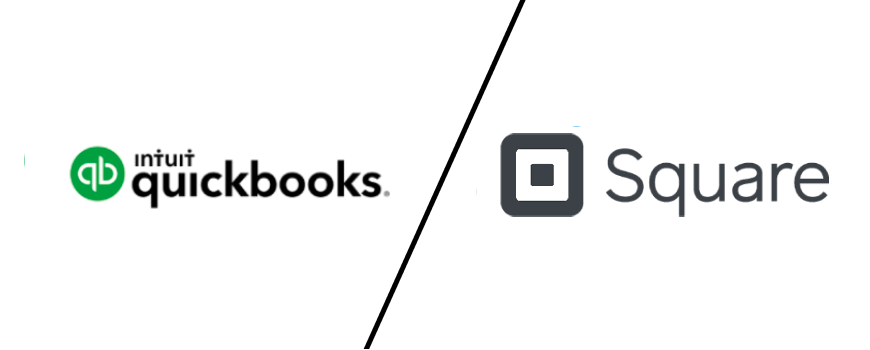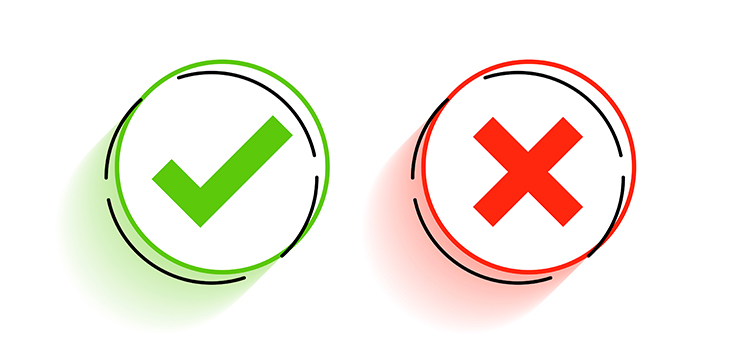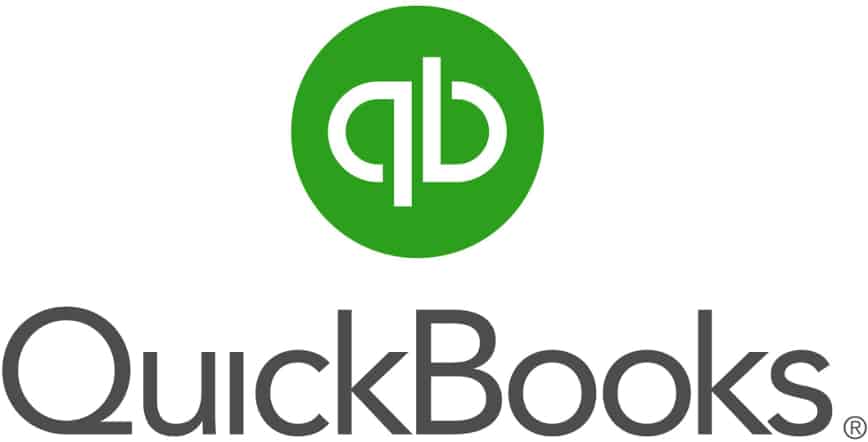Profitable business management demands good financial management. And, because of technology advancements, handling transactions and bookkeeping is now faster than before. QuickBooks and Square constitute two of the biggest and most popular business solutions. Both of these software provide significant features to help you manage your financial operations correctly. But which is the best option for you? In the following article, we’ll compare QuickBooks and Square to see which choice would be best for your company’s financial accounting requirements. So let’s get this started!

Introduction: QuickBooks Vs Square
QuickBooks
QuickBooks, a product by Intuit, provides accounting software that is tailored to the needs of businesses. It is meant to help small businesses manage their money more effectively. QuickBooks has a number of features, notably the ability to keep track of sales and costs, issue bills, manage inventory, handle payroll administration, and create reports on finances.
You May Also Compare
Choose what is right for you! Compare QuickBooks with Wave to keep your business running!
View All FeaturesSquare
Square is a transaction management company that offers a number of services including processing payment tools, point-of-sale systems, and the opportunity to build an online store. Square was founded in 2009 by Jack Dorsey and has since evolved to become one of the largest and most famous payment service providers on the market.
Features of QuickBooks

| QuickBooks | Square |
| Billing | Stock Control |
| Time Tracking | Point of Sale |
| Expense Monitoring | Online Store |
| Reports on Finances | Marketing |
Comparison: QuickBooks versus Square | ||
| Focus: Square places a priority on the processing of payments, point-of-sale solutions, and capabilities for e-commerce, while QuickBooks concentrates primarily on financial and accounting administration. | Target Market: QuickBooks supports an array of industries, including commerce, manufacturing, and service-oriented organisations. Small companies, startups, and companies in industries such as retail and hospitality are more suitable for Square. | Pricing: QuickBooks provides numerous pricing tiers based on the capabilities you require, with a dependent on subscriptions pricing strategy. Square, on the other hand, can impose transaction charges for the processing of payments, but its software for point of sale frequently comes free. |
| Integration: QuickBooks provides a wide range of integrations with numerous business tools, which renders it easier to personalise. Square also provides connections, but its main business objective remains on payment handling as well as associated services. | User Interface: QuickBooks features a rich and extensive user interface that might be useful for thorough handling of finances. Square’s UI is more efficient and simple to use, especially for POS and transaction processing chores. | |
Pros and Cons: QuickBooks Vs Square
QuickBooks Pros & Cons

Pros | Cons |
| Comprehensive Accounting Features: QuickBooks has a comprehensive collection of accounting tools including cost monitoring, billing, accounts payable and receivable management, bank reconciliation, general ledger, and reporting on finances. Thus rendering it a full solution to overseeing monetary transactions for enterprises. | Cost: QuickBooks may prove costly to purchase, especially for businesses that require several users or advanced features. The structure of costs may be excessively expensive for very small enterprises or startups that have little capital. |
| Client-Friendly Interface: QuickBooks provides a simple and intuitive experience for users, allowing accounting professionals and owners of companies with minimal expertise in accounting to effortlessly browse and use the application efficiently. | Learning Curve: While QuickBooks has a straightforward style, it does have a learning curve, especially for folks who are completely unaccustomed to accounting software. It may take some time to become familiar with all of the possibilities and features. |
| Customization and Integrations: QuickBooks provides a wide range of modifying options, letting users tailor the software to their individual company needs. It also connects with a wide number of independent applications and solutions, resulting in effortless data synchronisation and management of workflows. | Customer Support: Some people have had conflicting feelings about QuickBooks customer service. Getting fast and competent help can be critical for organisations, and some users have expressed concern over occasional support issues. |
| Time-Saving Features: By implementing features like periodic billing, transaction classification, and feeds from financial institutions, QuickBooks saves significant time and avoids mistakes when putting in data. | |
| Reporting and Insights: The application provides a variety of financial statistics, including revenue and expenses, balance sheet, and flow of money. These reports provide useful insights into the company’s financial situation, which improves the making of choices. | |
| Mobile App: QuickBooks provides a mobile app that allows customers to access critical tasks on their smartphones or tablets, making it simple to keep updated with their finances while on the go. |
Square Pros & Cons

Pros | Cons |
| Payment Processing: Square has a solid reputation for providing dependable and simple processing of payments services. It permits businesses to effortlessly take credit card payments, smartphone payments, and online transactions, providing the process simpler for consumers as well as sellers. | Limited Accounting Features: Square’s primary focus is on the processing of payments and point-of-sale solutions, hence it lacks the extensive accounting functionality offered by dedicated accounting programs like QuickBooks. |
| Point-of-Sale (POS) System: Square provides an extensive POS system which incorporates hardware such as readers for cards, cash registers, and tablets. Businesses can easily conduct transactions, manage sales, and monitor stock thanks to the intuitive and straightforward interface. | Transaction Fees: While Square’s pricing is clear, transaction costs can be higher than with different payment processors in the system particularly for firms with significant sales volumes. Certain company profitability may suffer as a result of this. |
| Inventory Management: The inventory administration feature of Square permits businesses to maintain records of stock levels, set up low inventory alarms, and handle purchase orders. This assists firms in keeping proper levels of supply and avoiding shortages of goods. | Integration Limitations: Although Square offers interfaces with a variety of third-party products, its network of partners may be less vast than that of certain additional accounting and finance solutions. This could be a problem for companies looking to implement particular integrations. |
| E-commerce Integration: Square offers tools for creating and managing online storefronts, letting businesses broaden their scope and sell things online. The interaction with the POS system keeps both online and offline transaction information in sync. | Customer Support: Some users have noticed occasional issues with Square’s customer service. For businesses, timely and effective help is crucial, and inconsistent assistance experiences have proven a source of worry for a few customers. |
| Accessibility and Portability: Square’s smartphone application allows companies to accept payments and oversee sales from anywhere using a smartphone or tablet, making it ideal for wherever they are enterprises or those with multiple locations. | |
| Transparent Pricing: Square provides plain and transparent costs for its processing of payments services. It normally charges a fixed price per transaction, which can be beneficial for organisations with varying quantities of sales. |
Price: QuickBooks Vs Square
QuickBooks
- QuickBooks has several pricing categories that correspond to diverse business demands. A monthly subscription cost determined by the capabilities and functions required is often included in the pricing structure. The packages range from the most basic for small companies to the most advanced for larger corporations. QuickBooks may also provide special offers or price reductions to particular users, making it more inexpensive. QuickBooks Online Basic Start: Fundamental features for small-scale businesses. Monthly rates begin at $30.
- QuickBooks Online Essentials adds extra tools like bill administration as well as time monitoring. Monthly rates begin at $55.
- QuickBooks Online Plus: Incredible features for expanding enterprises. Monthly rates begin at $85 USD.
Square
- Square’s pricing plan differs from QuickBooks’, particularly in terms of payment processing. Square charges fees for transactions for processing credit card payments, which vary depending on the payment method and transaction type. These fees can mount up quickly for firms that have substantial transaction volumes, increasing ultimate expenditures. Square’s point-of-sale (POS) software and essential features, on the other hand, are often provided for free, making it approachable to small enterprises with not many resources. Every time a consumer taps, dips, or swipes their card during an in-person transaction, Square takes 2.6% plus 10 cents. Square imposes a transaction fee of 3.5% + 15 cents per transaction for payments made in person where the card is manually entered in, virtual transactions, and payments from cards on file.
- For transactions done via an online store, online checkout, electronic commerce application programming interfaces (API), or online invoices, Square charges 2.9% plus 30 cents.
Integration: QuickBooks Vs Square
QuickBooks
QuickBooks is commonly recognized for its robust connection options, which allow users to link the accounting program to a variety of other apps and services. As a result, it is extremely adaptable to a wide variety of business procedures. It can be paired with handling inventory, customer relationship management, management of projects, and other programs, improving its capabilities and providing an entity with a complete administrative solution.
Square
While Square provides a variety of connectors, the company’s primary focus is on building its own network. It works in tandem with other Square products such as Square Online Store, Square a POS, and Square for Restaurants. In comparison to QuickBooks, Square has a much lower number of separate connectors available. This could be a disadvantage for firms who rely largely on third-party solutions and require greater control in their software selection.
Desktop and Mobile Platforms
QuickBooks
QuickBooks is accessible as both a desktop application and as a cloud-based service. QuickBooks Desktop offers an extensive list of features that can be controlled on a single device, whereas QuickBooks Online allows customers to get their information from any location with an internet connection. QuickBooks also offers iOS and Android mobile applications, letting customers to administer their accounts while on the go.
Square
Square concentrates mostly on cloud-based solutions and mobile platforms. It does not provide standard desktop software, such as QuickBooks Desktop. Square’s functionalities are instead accessible via its online dashboard and mobile application. The mobile app enables businesses to monitor sales, accept settlements, and monitor stock from anywhere, therefore being ideal for mobile enterprises or those with several locations.
Customer Support: QuickBooks Vs Square
QuickBooks
Intuit, QuickBooks’ parent company, is widely recognized for providing exceptional customer support. They offer a number of help options, namely phone assistance, support through email, discussion boards, and a big information database. Users frequently appreciate the ease of access to live customer care and the quick pace with which they receive an answer.
Square
Square also provides customer care, but the quality of support varies depending on the customer’s plan and the nature of the issue. Support via email and a complete online support centre are available for free. However, consumers on some pricing levels may have limited access to phone help. While Square does offer customer service, some consumers have claimed difficulty in receiving fast and satisfactory responses to their issues.
Payment Type: QuickBooks Vs Square
QuickBooks
QuickBooks concentrates mainly on accounting and financial administration, and while it offers invoicing and payment tracking services, it lacks Square’s handling of payments capabilities. QuickBooks normally supports online payments through means such as deposits from banks and payments made with credit cards, while the entire payment processing capabilities may involve integration with various outside payment processors.
Square
Square has become known for its dependable payment processing services. It accepts a range of payment methods, including debit and credit cards, contactless payments, smartphone payments, and electronic transactions. Square’s easy readers for cards and POS software allow businesses to accept a variety of payment types both in person and online, making it an increasingly common option among many.
User Rating: QuickBooks Vs Square
QuickBooks
QuickBooks has encountered generally favourable feedback from customers for its comprehensive accounting capabilities and ease of use. Users acknowledge the program’s intuitive layout, customization options, and ability to efficiently perform a wide range of accounting tasks. Some customers, though, have expressed concerns about expenses and uncommon technical glitches.
Square
Square has garnered positive feedback from customers, particularly for its straightforward handling of payments and user-friendly POS system. Square is widely lauded by small businesses and startups for its simplicity and accessibility. Certain clients, however, have highlighted concerns regarding fees for transactions and technical assistance limits.
Conclusion
When comparing the characteristics, benefits, and downsides of QuickBooks against Square, it’s clear that both applications have benefits and drawbacks. Lastly, your decision amongst them is governed by what you need for your business.
QuickBooks is ideal for small to medium-sized businesses that need a strong accounting system with advanced functionality like inventory management, payroll administration, preparation of taxes services, and so on. Square, contrary to popular belief, is suitable for startups or small businesses that require a POS system as well as basic management and financial tools.
So, when deciding between QuickBooks and Square, consider your budgetary limitations and particular needs in mind, such as billing requirements or methods of payment available.

